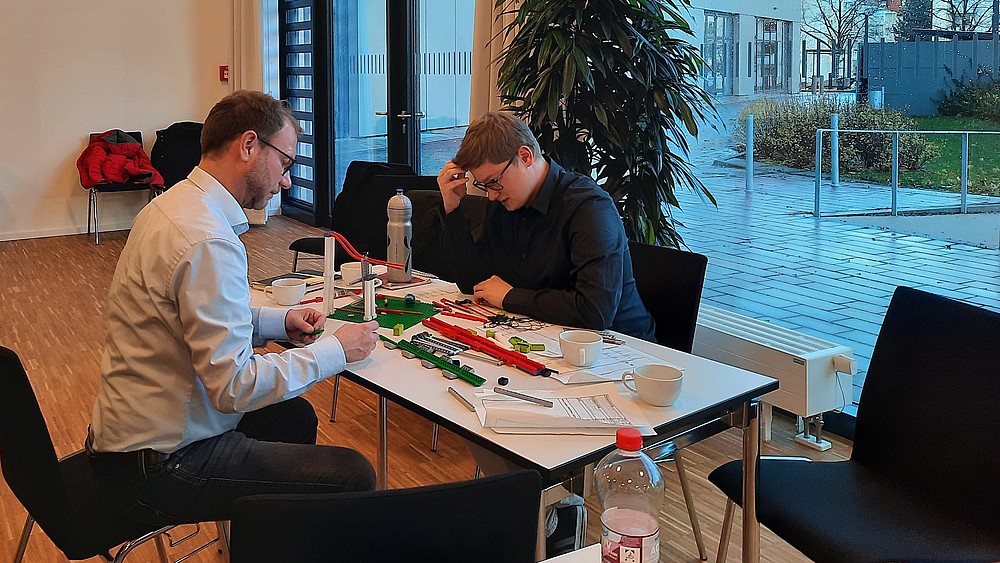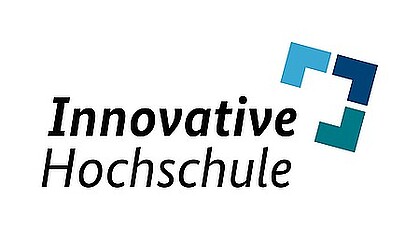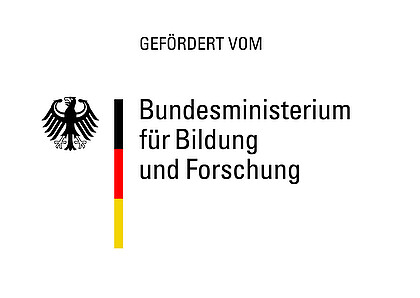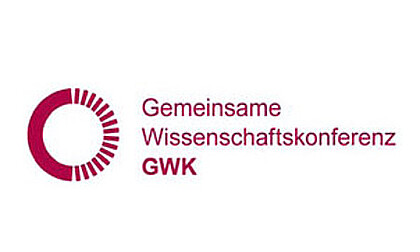From getting to know each other to a joint project application in 5 hours: a self-experiment by Energy Saxony

Sixteen interested and highly motivated members of the Energy Saxony working groups"Heating and Cooling" and"Building Energy Technology" took part in the innovation workshop on November 24: (Seasonal) heat storage systems and their systemic integration. The event was organized by Mareike Schneider from the Zittau/Görlitz University of Applied Sciences (member of the Saxony5 university network). The event was hosted by the Fraunhofer Institute for Integrated Circuits IIS (Development of Adaptive Systems EAS branch) in Dresden.
The Saxon transfer network project Saxony5 aims to "achieve a new quality of transfer in terms of content and methodology through interdisciplinary cooperation and intelligent networking, and thus sustainable welfare development for the region."
Linking interesting event concepts with current research topics is one of the tasks in the project and it is always a great pleasure when researchers from a wide range of disciplines get involved with curiosity and partners from industry can also be brought on board.
No sooner said than done! The workshop was designed and organized, the necessary working materials prepared and the invitations sent out to the working groups.
At 10 a.m. on Friday morning, Dr. Andreas Wilde opened the workshop as head of the "Building Energy Technology" working group and host at Fraunhofer IIS. Marcus Rohne, PhD student at the TU Bergakademie Freiberg and research associate at the Zittau/Görlitz University of Applied Sciences, then gave the first keynote speech entitled "Fundamentals, development status and application scenarios for heat storage systems", providing a technical introduction to the event. The second impulse at the opening came from Energy Saxony on "Current funding opportunities" and was given by Dr. Clemens Schneider as head of the "Heating and cooling" working group.
After the impulses, the participants were immediately introduced and matched for the subsequent group work. The central questions during the introduction and matching were: "What skills do I bring to the network?" and "What is my motivation for being here?"
The matching process resulted in three groups, each consisting of different research and educational institutions and regional companies.
In the first phase of the joint group work, the main focus was on collecting the challenges and goals and recording initial thoughts, ideas and solutions from the group's self-reflection.
Before lunch, the individual project ideas were collected and briefly presented to all workshop participants so that further contacts could be made during the one-hour lunch break.
The second phase of the group work then focused on working out weighted project ideas in concrete terms. Potentials and markets, possible funding programs and other project partners, through to the definition of work packages and their responsibilities, were set out in writing and the next steps were jointly determined.
Shortly before 3 p.m., two out of three groups agreed: "Yes, we will submit a joint project application!"
Of course, the details of the respective project title remained top secret! So it was all the nicer to find a degree that once again activated and united all workshop participants.
A Lego challenge was spontaneously launched, in which everyone took part enthusiastically and brought even the last participant to the 'you'. The winner was chosen as the final degree of the innovation workshop.
We wish all participants every success in the further implementation of their ideas!
Your team from Energy Saxony & Saxony5
Our special thanks go to the team at Energy Saxony for the exceptionally collegial and appreciative cooperation and to Daniel Winkler, lecturer for university didactics, for providing the Lego.
The Energy Saxony working group "Heating and Cooling", headed by Prof. Tobias Zschunke (Zittau/Görlitz University of Applied Sciences) and Dr. Clemens Schneider (Fraunhofer Institute for Energy Infrastructures and Geothermal Energy, IEG), has set itself the task of transferring innovative, resource-saving and environmentally friendly concepts for heating and cooling into practical applications. Together with the players in the "Building Energy Technology" working group, headed by Dr. Andreas Wilde (Fraunhofer IIS, EAS division), the aim is to develop support services for energy-efficient building optimization for the real estate sector.



